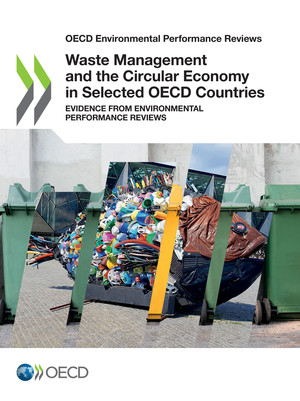copy the linklink copied!Preface
Recent decades have witnessed an unprecedented growth in demand for natural resources and materials. Globally, the use of material resources grew from 27 billion tonnes in 1970 to 89 billion tonnes in 2017 and it is projected to increase further to 167 billion tonnes in 2060 (OECD Global Material Resources Outlook to 2060). The environmental consequences of material use will be magnified with the projected doubling of greenhouse gas emissions, pollution to the soil, water and air and damaging effects on ecosystems. Against this background, there is a growing imperative to transition to a more resource efficient and circular economy.
This report summarises key findings and lessons learned in the area of waste, materials management and the circular economy from OECD Environmental Performance Reviews conducted in 11 countries between 2010 and 2018: Japan (2010); Israel (2011); Norway (2011); Slovenia (2012); Colombia (2014); Netherlands (2015); Poland (2015); Korea (2017); Estonia (2017); Hungary (2018) and Czech Republic (2018).
Over this period, countries have become increasingly engaged in promoting policies that encourage greater resource efficiency. The report highlights that countries have improved their material productivity and waste management practices in the last two decades. Countries have also strengthened their policies with regulatory changes and economic instruments, mainly designed to drive waste away from landfills, increase recycling and reduce waste generation. However, the report stresses that more work need to be done. Many countries still lack effective institutional arrangements and accurate data to implement a coherent circular economy transition. Enforcement and compliance promotion remain important challenges, even in countries with advanced waste management practices.
The report builds on the wealth of policy analysis of Environmental Performance Reviews and Information. For some countries, information may be more recent than others. Still, the policy recommendations emerging from the reviews provide useful lessons for other jurisdictions. It is the result of a constructive dialogue of participating countries in the OECD Working Party of Environmental Performance. I am confident that this effort will be helpful to exchange on good practices and solutions to improve the transition to a resource efficient and circular economy.

Rodolfo Lacy
Director, OECD Environment Directorate
Metadata, Legal and Rights
https://doi.org/10.1787/9789264309395-en
© OECD 2019
The use of this work, whether digital or print, is governed by the Terms and Conditions to be found at http://www.oecd.org/termsandconditions.


